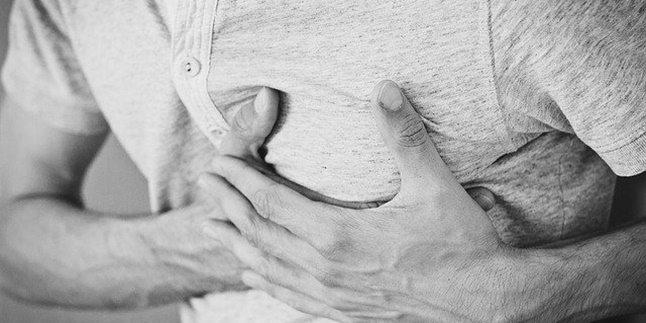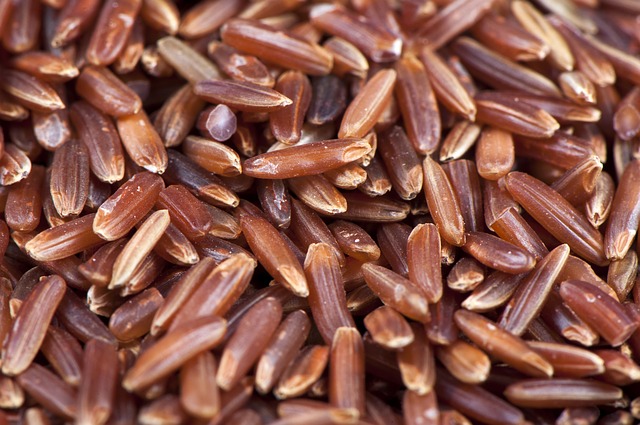6 Benefits of Fasting for Children, Not Only Good for Body Health
There are many benefits of fasting for children. What are those benefits? Let's find out the answers in this article.

Kapanlagi.com - Fasting in Ramadan is a mandatory worship for every Muslim who has reached puberty. However, there are leniencies and facilities for Muslims who are in difficulty, such as the sick. Nevertheless, there are times when sick people still want to fast. There are several tips for fasting in Ramadan for heart patients.
Actually, fasting in Ramadan can have a positive impact on health. Because fasting will keep heart patients away from cholesterol-rich foods that are harmful to health. Not only avoiding dangerous foods, fasting can also reduce the activities of heart patients.
However, to ensure a safe fasting, it is advisable to follow the following tips for fasting in Ramadan for heart patients.

(credit: pixabay)
The first and most fundamental tip for cancer patients during Ramadan fasting is to consult a doctor. After all, doctors are the ones who truly know someone's medical condition. Moreover, heart disease is not a condition that can be taken lightly.
This means that even if you feel that your body is in good and healthy condition, it is still advisable to consult a doctor to ensure your future health condition. If the doctor eventually allows you to fast, don't forget to ask for advice and tips regarding fasting, such as the types of food that should be consumed or avoided.

(credit: pixabay)
Consuming healthy food during suhoor and breaking the fast is a must for anyone who wants to stay healthy during fasting, especially for heart patients. This is one of the important tips for heart patients during Ramadan fasting.
The menu for breaking the fast and suhoor should be a concern. For heart patients, it is recommended to choose complex carbohydrates, such as brown rice or whole wheat bread, during fasting. Complex carbohydrates have relatively low sugar levels compared to simple carbohydrates, making them safer for heart health.
As we know, there are various types of foods that can trigger cardiovascular or heart diseases. Therefore, these types of heart-triggering foods should be avoided during fasting and pre-dawn meal.
Some types of foods that heart patients should avoid include fatty meat and coconut milk-based foods. Both of these foods can cause uncontrolled increase in blood sugar. Because diabetes can increase the risk of heart disease. In addition, avoid fried foods to maintain body cholesterol.

(credit: pixabay)
During fasting, the body will experience a lack of fluids, making it prone to dehydration. That is one of the reasons why fluid needs during fasting must still be fulfilled. However, it turns out that meeting fluid needs not only prevents dehydration. Fulfilled fluids can also protect us from heart disease. Because when fluid needs are met, the body will feel fresher and more energetic.
One way to meet fluid needs during fasting is by implementing a drinking schedule of 2, 4, 2. It means, 2 glasses during breaking the fast, 4 glasses between breaking the fast and before sleeping, and 2 glasses during pre-dawn meal.

(credit: pixabay)
The next Ramadan fasting tips for heart disease patients is to maintain sleep patterns. In addition to fluid needs, sleep or rest is also a necessity that must be fulfilled during fasting. Without enough sleep, the body will feel weak and easily drowsy. This will make someone vulnerable to a recurrence of heart disease. On the other hand, sufficient sleep will make a person feel fitter and fresher.
Unfortunately, during Ramadan fasting, sleep patterns will be disrupted due to pre-dawn meal activities. But, don't worry, sleep patterns during fasting can be improved by implementing several methods such as trying to sleep earlier or taking naps.
The last and most important Ramadan fasting tip for heart disease patients is to constantly monitor their personal health condition. Never force yourself. If you are really not strong enough, it is advisable to break the fast and make up for it later if possible.
Consult with a doctor to recover your health as soon as possible.
Those are some Ramadan fasting tips for heart disease patients. As we know, Islam provides flexibility or ease for the people who have difficulty performing a religious obligation. So, do not hesitate to not fast if your health condition is not good.
(kpl/psp)
Cobain For You Page (FYP) Yang kamu suka ada di sini,
lihat isinya
There are many benefits of fasting for children. What are those benefits? Let's find out the answers in this article.
Having oily and greasy hair can be very annoying, so here are some natural ingredients that you can use to overcome oily and greasy hair. Curious about what the ingredients are? Let's check it out.
These ways to shrink facial pores can help you avoid acne-prone skin. Pores themselves are openings containing oil glands and hair follicles that can enlarge due to clogged dust or dirt.
Having thick eyelashes is every woman's dream, and there are natural ways to thicken eyelashes. Curious about what those natural ways are? Let's check it out.
Keeping your body in good condition during fasting is necessary. One thing you can do is consume healthy food during suhoor and iftar.
Breaking the fast is most appropriate when drinking refreshing drinks. Find recommendations for refreshing drink recipes suitable for breaking the fast in this article.
During fasting, it is enjoyable to drink something sweet and refreshing. But it is healthier to make it ourselves. Let's check out this sweet, refreshing, and healthy drink.
Although dehydration is mild and not life-threatening, it can certainly disrupt activities and should not be underestimated. Dehydration usually has symptoms such as weakness, dizziness, headaches, and easily tired body.
In addition to performing obligatory acts during the month of Ramadan, you can also perform voluntary acts to earn abundant rewards in this sacred month. And here are some good sunnah prayers to perform during the month of Ramadan.
Many people do not have Sahur because they are lazy to cook in the kitchen. But don't worry, here are some ways to cook Sahur meals that are practical, less than 20 minutes. Let's check it out.
The month of Ramadan is a blessed month eagerly awaited by Muslims around the world. This is because the good deeds performed during Ramadan are rewarded multiple times.
People with stomach problems or gastric sufferers must pay close attention to their eating patterns to prevent gastric relapse. When Ramadan arrives, they are required to continue fasting. The fear of gastric relapse is certainly a dreaded thing.